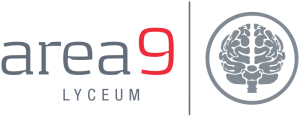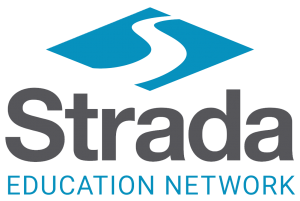By Jeanne Allen, Founder and CEO of CER
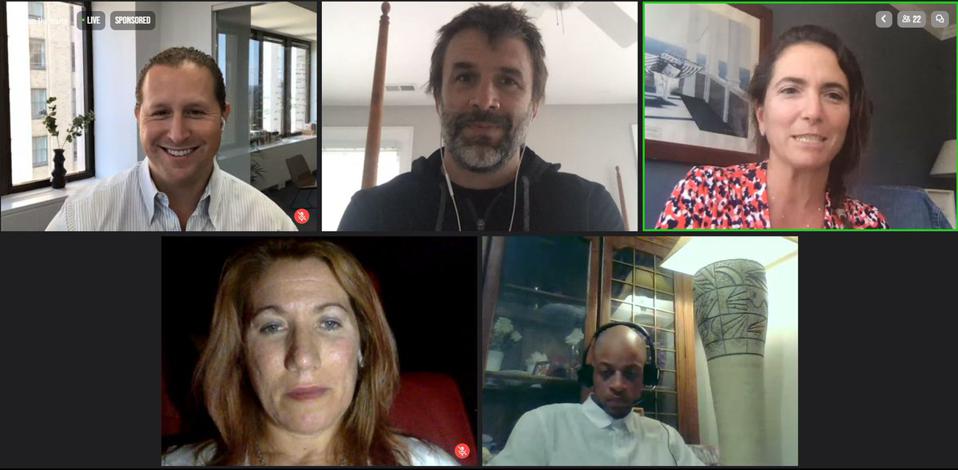 Panelists take part in a virtual session of the U.S.-Italia Education Innovation Festival. THE CENTER FOR EDUCATION REFORM
Panelists take part in a virtual session of the U.S.-Italia Education Innovation Festival. THE CENTER FOR EDUCATION REFORM
While the political cyclone of 2020 continues to suck the air out of the proverbial room, the world of education innovation continues to engage in the all important task of responding to and iterating for the challenges of education worldwide. It’s astounding and inspiring to convene with the best in class entrepreneurs whose work is not only making a difference, but can help you forget the insanity we live in today.
It’s hard to believe, but I had the chance to attend one such convening just last month, in Italy, no less! In full disclosure, the US-Italia Ed Innovation Festival, was the brainchild of my organization. Our “modest” goal was to create a new education renaissance, so we set out to do so with this unique hybrid event. What’s most remarkable and newsworthy isn’t just that it happened, but that the assembly of on-ground and on-line attendees from throughout the two countries were able to demonstrate the success of new educational synergies to benefit students throughout our globe in this era of Covid-19. Despite the daily bad news headlines about education and work being upended dramatically by the pandemic, these conversations showed that it’s possible to solve our most pernicious problems with focus, coordination and the right innovations.
As in the US, schools in Italy had to adapt and rely on technology that wasn’t widely available and move fast to get teachers trained. Invalsi’s CEO Roberto Ricci and TAO-Testing’s Marc Oswald worked with the Italian Ministry of Education’s strategies for handling the blow Covid-19 had on schools. They found that many Italian schools that had transitioned from paper to digital a few years ago were able to get back up early on, and recognized that their biggest challenge was the teaching force.
“The age of the teaching population is above 40 years old, if not older,” Oswald points out. “Running a class using digital tools is not something they have learned. This has become one of the biggest challenges.” With evaluation and real time assessments, they were able to improve teaching and learning even as school was being disrupted.
Technologies used well can not only fill gaps but broaden the horizon of students across the globe. A great example is this virtual reality dive into Herculaneum (Ercolano in Italian) a city once buried under 16 meters of ash and mud during the eruption of Mount Vesuvius in 79 AD. Created by teacher and VR/AR ed tech expert Michael McDonald, students and teachers from around the world “entered” the Ancient City experiencing the excavation of two-story domus homes, along with their internal architecture and décor still intact, featuring wood and marble interiors, jewelry and organic remains like food.
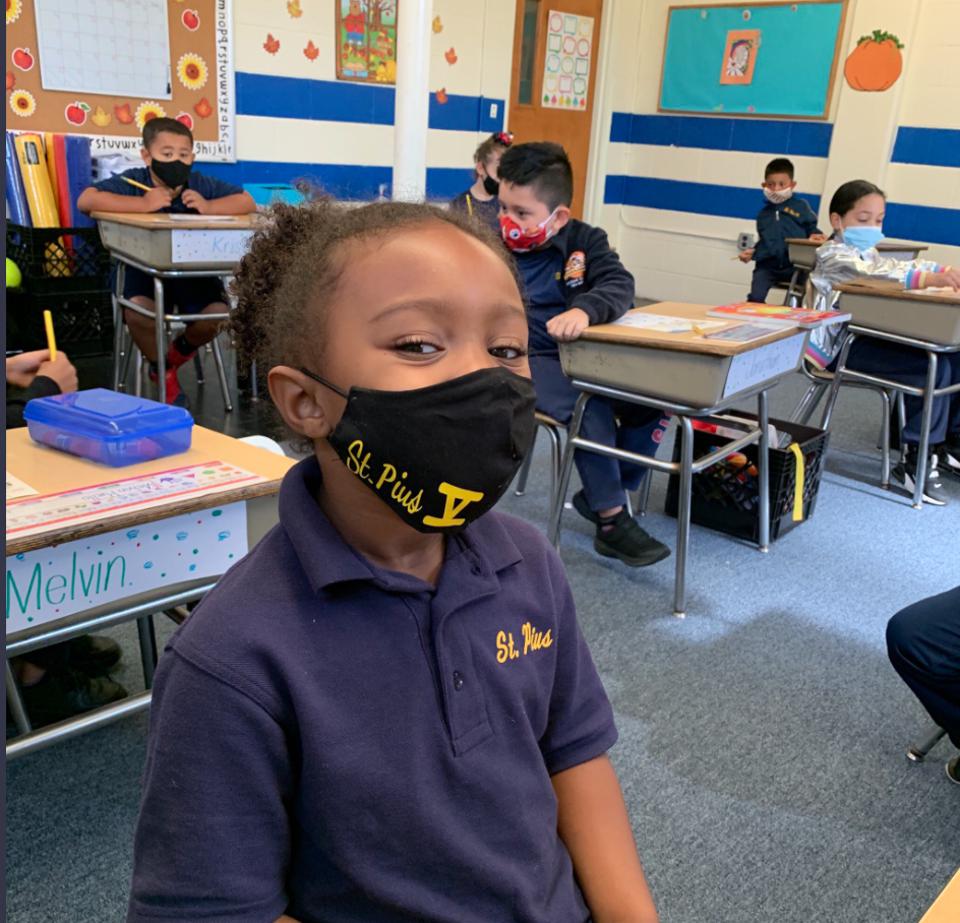 Marco Cappellini, co-founder of Centrica, leads a virtual session at the U.S.-Italia Education Innovation Festival this September in Ercolano, Italy. THE CENTER FOR EDUCATION REFORM
Marco Cappellini, co-founder of Centrica, leads a virtual session at the U.S.-Italia Education Innovation Festival this September in Ercolano, Italy. THE CENTER FOR EDUCATION REFORM
Imagine utilizing such technology to take students from rural North Carolina or East Harlem “to” Ancient Rome to help them learn the history, innovations and science surrounding its rise and fall! Products using VR, AR and MR can open up pathways for millions, lifting constraints on what the typical physical classroom can do.
Lyman Missimer, a leader at Newsela, which provides digital, standards-aligned instructional content to millions of students said that regardless of where students are, if you are able to establish equity and accessibility you help accomplish the mission of education. Demand for Newsela’s tools increased dramatically overnight. “What Newsela did, along with many other Edtech companies across the world. was to make products available for free to any school that would want to utilize it for distance learning,” said Missimer. “We also had to work directly with all 2,000 districts that ended up coming to Newsla and for distance learning. Engaging with those districts we learned a lot; the biggest thing was that we needed to be integrated with” all the other tools these districts are using”.
Technology is a tool not only to create efficiencies but transport learning and make our world smaller, according to K12’s Chair Nate Davis. States, districts and schools once hesitant to engage with online learning were drawn to K12’s ability to deliver both high quality academic and technical education quickly in the face of Covid. “Technology transports learning. It makes our world smaller, it connects us,” Davis, said. “School does not have to end locally, it can expand.”
Chris Whittle, Chairman and CEO of Whittle School and Studios also argued that school should be a global institution. “A school is a place students learn, but they learn from the environment as much as the curriculum…where they are globally connected, and students are exposed constantly to lessons,” Whittle explains. “A well-constructed system of schools can do things that a single school cannot.”
That’s evident in the work being done at Academica, where across a large system of schools technology became a powerful tool for teachers, not a replacement.
Managing Director of Academica Virtual Education Antonio Roca described the school network’s approach. “We found ourselves with 200 brick-and-mortar schools in the Fall and wondered how we were going to open those and respect parents’ wishes on returning or not. We built something new – ‘the classroom of the future’ – and have installed auto-tracking cameras and large flat-screen TVs that allow teachers to simultaneously teach students remote and live. We think that this is where the future is – combining the two modalities and making it seamless so that students don’t have to miss another day due to covid or traveling – a student can watch their live class, engage, and interact from anywhere with both the teachers and their peers,”
And Academica’s Dual Diploma Program is helping open up endless possibilities to attain knowledge for students across the globe, connecting over 12,000 students from 11 countries with new career opportunities. Program director Richard Collins likened today’s advancements in technology to an important lesson from a famous art critic nearly 100 years ago who noted that just because art was getting printed into books did not mean people were going to stop going to Florence and Milan and Paris to see art.
“That reproduction was supposed to stimulate people to go and see it and learn about it before they go and see it,” Richard says. “We are finding out today how to use our digital tools, which are here to stay, and make it work within a system that has been in the planning, and in the making for centuries.” The innovation of being able to take courses from two countries simultaneously and aligning requirements for credit that allows a dual diploma opens up global pathways that would never before have been possible, without leaving your computer.
Making it possible for exceptional writing instruction to occur, Jamey Heit, Co-Founder and CEO of Ecree, Inc. found that “even before Covid-19, the way the US was teaching [writing] wasn’t working.” The power of technology to help improve access to best in class instruction is no longer tied to a single place. “The reality is that the way the US has been teaching every subject has not worked for the majority of students.” Employers say that effective writing is the foundation for great communication skills. Ecree’s work spurred a discussion among attendees about how access to strong writing support and coaching can and should be global.
It’s about “how do you give people equal opportunity to participate in the future?” says the visionary founder of GSV, Michael Moe. When things aren’t working and there are so many disparities, it causes cynicism and distrust. “ The fundamental issue is access to quality education,” but it’s not ubiquitous. So “people are angry and believe the system is rigged and they’re right,” Moe says. We must lift barriers to the future. Said Zanichelli Venture’s Enrico Poli on site in Italy, “We need to give our students trust in the future and in our education system” across the world.
Enabling educators and workforce leaders to lower the barriers to advancement across oceans and irregardless of today’s physical challenges, the gathering produced renewed hope and resolve in massive global coordination to educate and train future generations for future unforeseen obstacles. Being “in” Italy physically and virtually was just the motivation people needed to renew, precisely the definition of renaissance.
Follow Jeanne on Twitter or LinkedIn or some of her other work here.
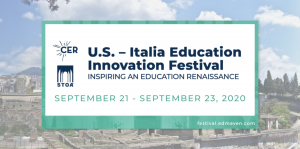 For The Media
For The Media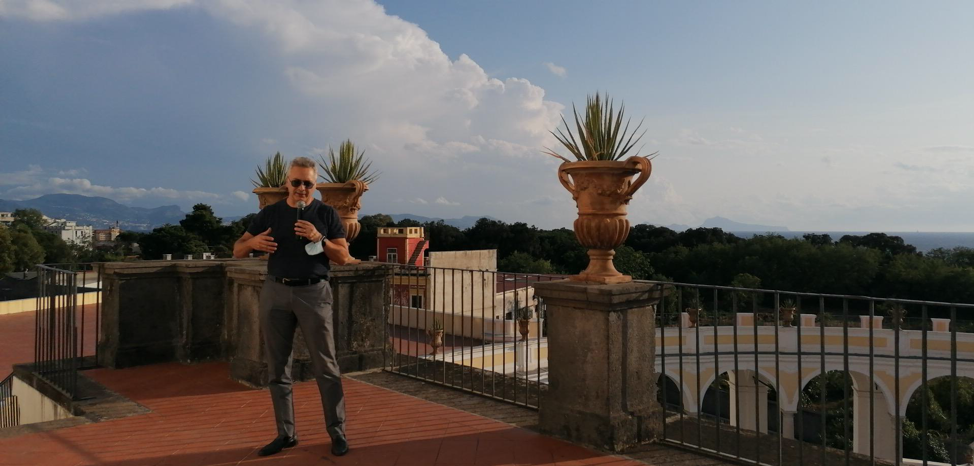 ERCOLANO COMES ALIVE! VIRTUAL TRANSPORT TO A CITY ONCE BURIED UNDER THE ASHES OF MT. VESUVIUS. Our first session took us back almost 2,100 years to the eruption of Vesuvius. With the guidance of
ERCOLANO COMES ALIVE! VIRTUAL TRANSPORT TO A CITY ONCE BURIED UNDER THE ASHES OF MT. VESUVIUS. Our first session took us back almost 2,100 years to the eruption of Vesuvius. With the guidance of 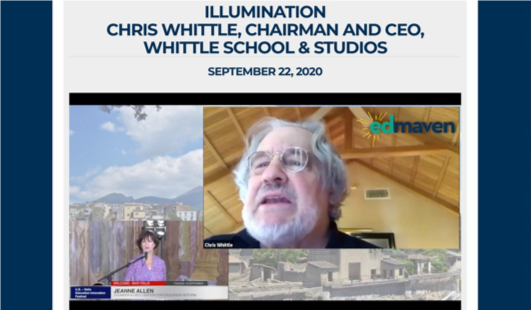 HOW LIVING IN A PANDEMIC IS CONNECTING MINDS ACROSS THE GLOBE. “A school is a place students learn, but they learn from the environment as much as the curriculum. Ours is a school that is globally connected, and students will have constant lessons,”
HOW LIVING IN A PANDEMIC IS CONNECTING MINDS ACROSS THE GLOBE. “A school is a place students learn, but they learn from the environment as much as the curriculum. Ours is a school that is globally connected, and students will have constant lessons,” 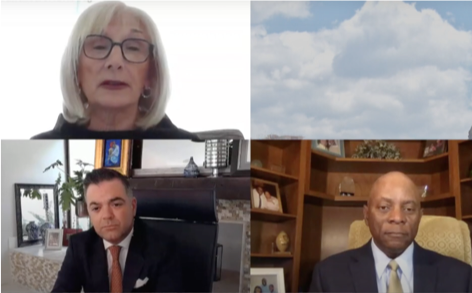 Italian-Americans were over-represented at the event, an intentional and natural consequence of the adventurous and entrepreneurial mindset that infects those of us with that heritage, especially! Take the amazing
Italian-Americans were over-represented at the event, an intentional and natural consequence of the adventurous and entrepreneurial mindset that infects those of us with that heritage, especially! Take the amazing  DUAL COUNTRY DIPLOMAS? Certo! By leveraging 21st century technology the Academica International Dual Diploma program makes it possible for thousands of students around the world to obtain a fully accredited U.S. high school diploma from their home country. Using technologyand its digital platform, over 12,000 students from 11 countries are acquiring skills for the workplace of the future.
DUAL COUNTRY DIPLOMAS? Certo! By leveraging 21st century technology the Academica International Dual Diploma program makes it possible for thousands of students around the world to obtain a fully accredited U.S. high school diploma from their home country. Using technologyand its digital platform, over 12,000 students from 11 countries are acquiring skills for the workplace of the future. 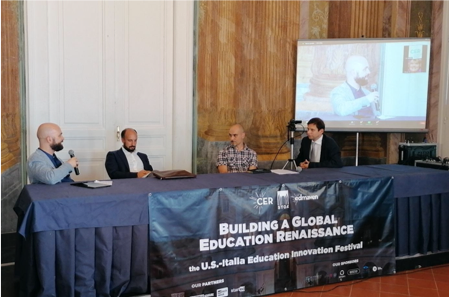 Because the Italian Ministry of Education accelerated their transition from paper to digital assessments some years ago, they were able to judge the effect of COVID19 on learning loss quicker than many of their global colleagues.
Because the Italian Ministry of Education accelerated their transition from paper to digital assessments some years ago, they were able to judge the effect of COVID19 on learning loss quicker than many of their global colleagues. 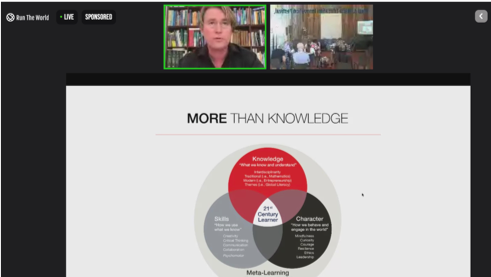 WHAT ABOUT THE FUTURE OF WORK? The pandemic has accelerated the need for students to have sets of business and digital skills.” The future of work has become the present of work”, says
WHAT ABOUT THE FUTURE OF WORK? The pandemic has accelerated the need for students to have sets of business and digital skills.” The future of work has become the present of work”, says  COVID NECESSITATES INNOVATION. Most folks not wedded to the education establishment realize that innovation — while always essential for school success — is even more important now with the changes necessary to deal with COVID. Minerva founder and
COVID NECESSITATES INNOVATION. Most folks not wedded to the education establishment realize that innovation — while always essential for school success — is even more important now with the changes necessary to deal with COVID. Minerva founder and 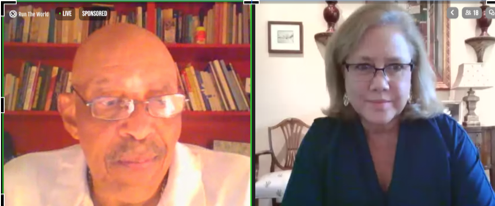 SHE WALKS THE WALK, as well as talks the talk, is a fitting introduction to our speaker who closed out day two.
SHE WALKS THE WALK, as well as talks the talk, is a fitting introduction to our speaker who closed out day two. 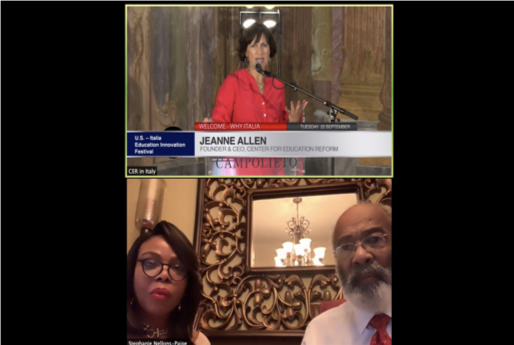 PREPARING STUDENTS TO WORK.
PREPARING STUDENTS TO WORK. 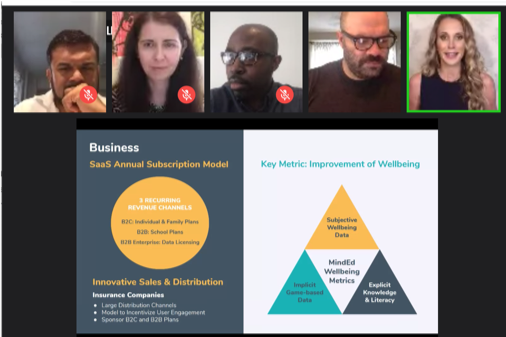 SHARK TANK! FISHING FOR INVESTMENT TREND INSIGHTS, INNOVATOR SECRETS AND START-UP PITCHES: A not to be missed recap of this event will be up on our
SHARK TANK! FISHING FOR INVESTMENT TREND INSIGHTS, INNOVATOR SECRETS AND START-UP PITCHES: A not to be missed recap of this event will be up on our 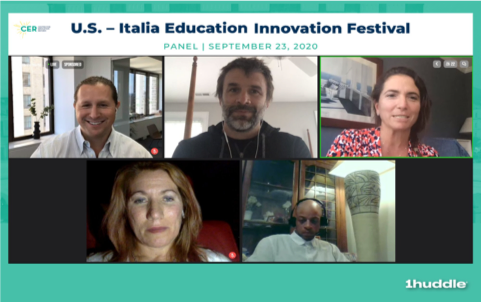
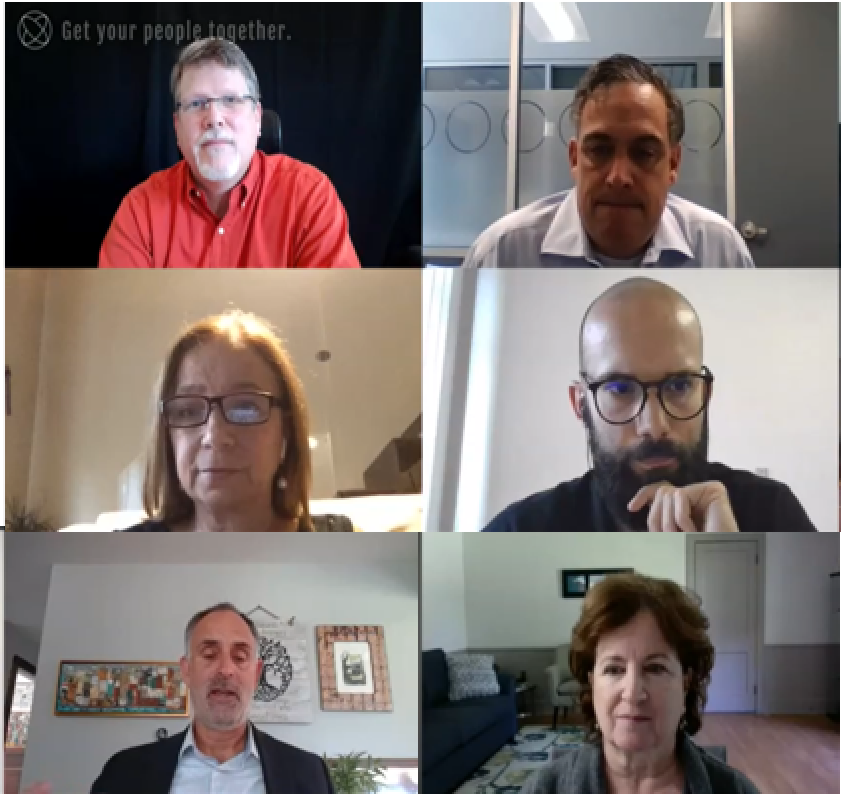 DESTINY IS NOT…WELL…DESTINY. In both Italy and the U.S. access to great education is still too much determined by zip code, gender, socioeconomic class and race. Moderated by
DESTINY IS NOT…WELL…DESTINY. In both Italy and the U.S. access to great education is still too much determined by zip code, gender, socioeconomic class and race. Moderated by  Articulating it better than we could ourselves, we share what this one partner said of the experience and look forward to the next time we can come together: “Years from now we will think back on this Covid-infested time and remind each other of this wonderful event, the on-line and unthinkable in-person presentations, we will remember our hosts running around the room checking and rechecking connections around the globe, the pizzette at the buffet table, the mysterious beauty of the venue location, the roller coaster excitement of the shuttle, the proximity of our accommodations to Castel dell’Ovo, the ubiquitous firecrackers, but above all we will remember the people we met, all these people who are dedicating their time and expertise to making the world a better place by employing digital technology in educational infrastructures of every sort.”
Articulating it better than we could ourselves, we share what this one partner said of the experience and look forward to the next time we can come together: “Years from now we will think back on this Covid-infested time and remind each other of this wonderful event, the on-line and unthinkable in-person presentations, we will remember our hosts running around the room checking and rechecking connections around the globe, the pizzette at the buffet table, the mysterious beauty of the venue location, the roller coaster excitement of the shuttle, the proximity of our accommodations to Castel dell’Ovo, the ubiquitous firecrackers, but above all we will remember the people we met, all these people who are dedicating their time and expertise to making the world a better place by employing digital technology in educational infrastructures of every sort.” 
